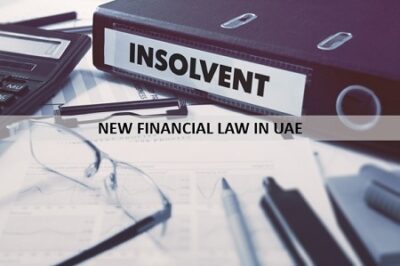New UAE Commercial Companies Law: 100% Foreign Ownership in LLC Mainland Companies
New UAE Commercial Companies Law: Which companies can claim 100% foreign ownership?
On 1st June 2021, amendments to Federal Law No. (2) of 2015 on Commercial Companies came into effect to allow 100% foreign ownership in LLC mainland companies in the UAE. Until recently, foreign investors could own a maximum of 49% of shares in such companies leaving 51% shareholding for an UAE national. Or, if speaking of a branch of a foreign company, it was prerequisite to have a local service agent to be named in the license.
The amendments were initially introduced by Federal Law by Decree No. (19) of 2018 on Foreign Direct Investment (FDI). This is in line with the UAE Cabinet initiative to loosen restrictions in certain economic sectors thus making it more attractive for foreign investors to run their business in the UAE mainland market, including global startups, and enhancing the positions of the UAE as a leading Middle East economy.
No requirement for nationality is now in place for establishing a company with the 100% foreign ownership. The Law states that “a foreign investor is considered a natural or corporate person who does not hold the nationality of the State (the UAE) and who invests in the State in accordance with the provisions of this Law by Decree”. Such persons will then be eligible for a renewable three years investor or partner visa.
The aim of these changes is to promote and develop the investment environment and promote attracting foreign direct investment in line with the developmental policies of the UAE. In particular:
- Asserting the position of the State as a major attraction hub for foreign direct investment both regionally and globally.
- Attracting and encouraging foreign direct investment.
- Expanding the production base, diversifying it, and transferring and attracting advanced technology, knowledge and training.
- Increasing the flow of foreign direct investment in the priority sectors to achieve balanced and sustainable development and create job opportunities in various fields.
- Achieving the best return with the available resources and securing high added values for the State’s economy.
The new regulations are to relax restrictions for companies engaged in one of the 122 business activities which are on the Positive list fixed in Cabinet Resolution No. 16 of 2020 on the Determination of the Positive List of Economic Sectors and Activities Eligible for Foreign Direct Investment and Percentage of their Ownership (enclosed at the end of this article). Activities on the Positive list fall under the following sectors:
- agricultural sector;
- manufacturing sector;
- services sector;
and include such activities as administrative and support services, agriculture, art and entertainment, construction, educational activities, healthcare, hospitality and food services, information and communication, manufacturing, professional, scientific and technical activities, renewable energy, space, transport and storage, etc.
In addition to establishing a comprehensive Positive list, the Resolution sets forth the licensing criteria for commercial companies falling under the FDI law, including the amount of minimum share capital for each activity – varies from AED 2 to 100 mln, minimum percentage of Nationals employed by such a company, the use of modern technology, contribution to R&D, bringing high added-value, and some other conditions for specific business activities.
There are certain exemptions to the 100% foreign ownership rule. Companies carrying out activities of a “strategic impact” will continue to be subject to foreign ownership restrictions. The following activities have already been listed in the Federal Law on Foreign Direct Investment and are on the Negative list:
- Exploration and production of petroleum materials.
- Investigations, security, military sectors, manufacturing of arms, explosives and military equipment, devices and clothing.
- Banking and financing activities, payment systems and dealing with cash.
- Insurance services.
- Hajj (pilgrimage) and Umrah services, providing employment and recruitment services for staff and servants.
- Water and electricity services.
- Services related to fisheries.
- Postal services, telecommunications services and audio and video services.
- Land and air transport services.
- Printing and publishing services.
- Commercial agents’ services.
- Medical retail such as private pharmacies.
- Blood banks, venom and quarantine centres.
The Council of Ministers is eligible to add or remove activities from this list.
Also, a resolution is to be issued to specify the procedures for registering and renewing the registration of foreign investment companies in a special register at the Investment Unit called “Register of Foreign Direct Investment”.
The introduction of the law on 100% foreign ownership can affect already existing LLC companies with local shareholding which may desire to reconsider their ownership structure. To do so such companies can sell the shares belonging to an UAE national to a foreign national and thus become a 100% owner of the company. Certain charter documents will need to be amended (Memorandums of Association) accordingly. Companies planning to make respective rearrangements can do so by 2 January 2022.
Among other notable changes are:
- introduction of mandatory corporate governance rules for all companies in the UAE (expected in the near future);
- general shareholders meetings can now be held with the use of modern technology and be presided by foreign nationals as well as Emirati;
- a general meeting can be called upon the request of one or more shareholders holding a minimum of 10% of the share capital;
- the notice period for holding a general meeting has been increased to 21 days;
- the amount of shares allowed to be sold via IPO has been increased to 70% (as opposed to 30%);
- the shareholders have been given the right to sue a company in civil court in the event of any failure of duty by its directors that resulted in loss of money or damage;
- expatriates can now be on the board of directors of joint stock companies;
- and the authority to recognize required capitalization, shareholding percentages, approve the establishment of an onshore company is now with the local government institutions.
All the novelties introduced both by Foreign Direct Investment Law and the Cabinet Resolution introducing the Positive list are likely to even further open both the UAE mainland market and stock market to foreign investors and international companies, at the same time making UAE business more transparent and attractive for listing by means of introducing proper unified corporate governance standards.
You can view or download the Foreign Ownership Activities (FOA) PDF List by clicking this link: Foreign Ownership Activities (FOA)




